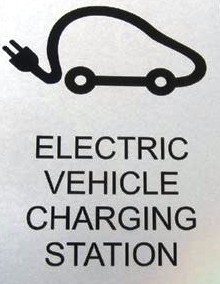 A new study by the University of Oxford predicts that the number of cars on the world’s roads in twenty years will double to 2 billion, but that electric vehicles will account for only a small percentage of the overall fleet in the medium to long-term.
A new study by the University of Oxford predicts that the number of cars on the world’s roads in twenty years will double to 2 billion, but that electric vehicles will account for only a small percentage of the overall fleet in the medium to long-term.
The study suggests that car companies are raising false hopes of emission-free motoring in order to continue profiting from large, inefficient vehicles.
The results echo the findings of a recent European report, which found that whilst there were significant potential environmental benefits to be had from a switch to electric vehicles, these were wholly dependent on changes in the way electricity was generated, energy taxed and CO2 emissions regulated.
The danger of ‘super credits’
 Current EU legislation contains loopholes that are likely to lead to emissions and oil use going up; ‘super credits’ that enable carmakers to sell up to 3.5 gas-guzzling SUVs for every electric vehicle they sell and still reach their official EU target. Electric cars are also counted as ‘zero emissions’ despite the fact that the electricity they use can come from high-carbon fossil fuels such as coal.
Current EU legislation contains loopholes that are likely to lead to emissions and oil use going up; ‘super credits’ that enable carmakers to sell up to 3.5 gas-guzzling SUVs for every electric vehicle they sell and still reach their official EU target. Electric cars are also counted as ‘zero emissions’ despite the fact that the electricity they use can come from high-carbon fossil fuels such as coal.
The University of Oxford study concludes that the most effective way of reducing emissions from motoring would be lighter, smaller petrol and diesel cars.
A spokesperson for the Environmental Transport Association (ETA) said: “Despite what we read in their advertisements, car manufactures are not driven by altruistic motives. However, this report may be overly pessimistic as given the right conditions, battery and fuel cell technology could evolve and be delivered tremendously quickly.”
0 Comments View now